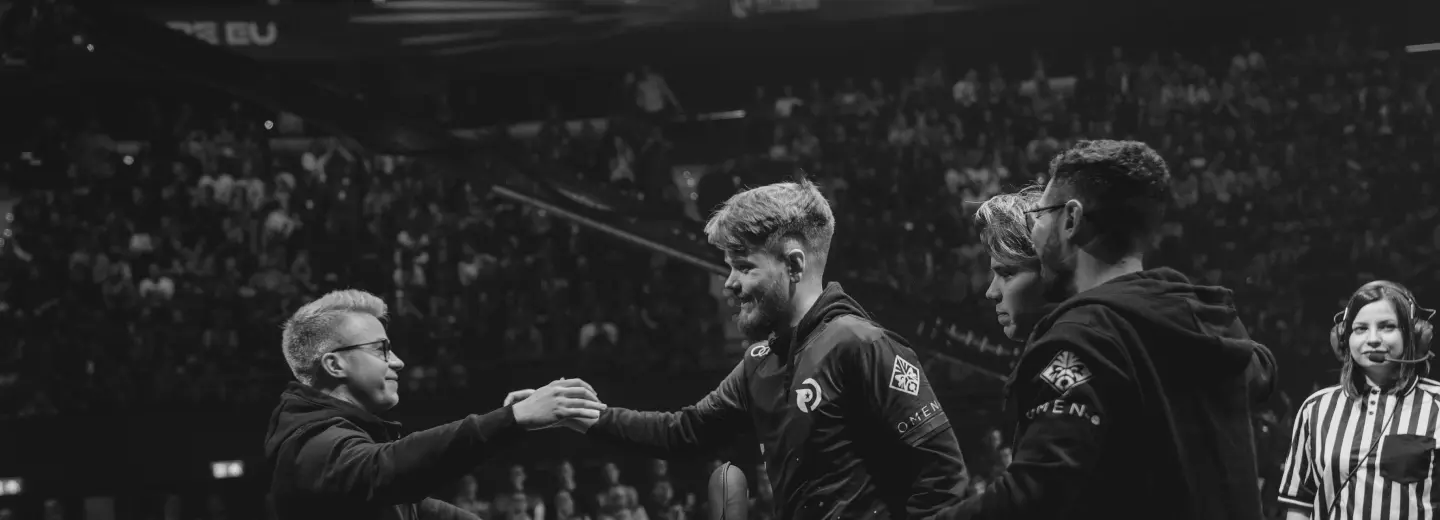

We will talk in this article about the current state of esports practice schedules, focus span of a human being, monotony and the impact on brain and stress. As well as the effects of having a periodized practice schedule .
Current state of esports practice schedules
Working across different titles and also working in organizations , with coaches or players, the big factor of teams not using their full potential comes down to their schedule. A tremendous amount of time is played without breaks, changes in day to day routines, and the entire practice training culture will take focus on the game (mainly playing).
Clearly, the game is the absolute priority but we need to understand that the player that is awake, energetic and goal oriented will have a more efficient day of practice than a person, that does not change the load of practice, goes day in and out at the same time to the office or computer and plays the same amount of hours every day. The teams and players being stuck in those schedules will become less motivated, efficient, lower their mental and physical health while having little to no time to end having time for family, friends or even partners.
We will dive deeper into what it means to not have a 2pm-8pm practice schedule every day, what montony does to you (stress and brain wise). But also what could be solutions in making sure to perform better, improve faster as well as having regeneration time and some time frame for yourself or loved ones.
Focus span of a human being
The focus of a human varies and depends on factors like sleep, nutrition, stress levels, and overall health. However, on average, the attention span of an adult ranges from 20 minutes to 60 minutes before the brain starts to feel fatigued. To work around this, it’s important to take breaks and engage in physical or mental activities that help to recharge the brain and maintain focus. Now due to being in esports we have a huge cognitive load while also having a one sided and repetitive physical load due to our gaming setup as well as position of equipment. Schedules that go for example in League of Legends (game into review into game x 5) meaning in 5-6 hours a constant battle between execution, feedback and result approach, it seems obvious that with every minute moving forward the efficiency of this practice is decreased.
Monotony – impact on brain
Monotony can create a negative impact on the brain by causing boredom and decreased attention. Extended exposure to monotonous tasks or environments can lead to a decrease in motivation and engagement, and can start into creating feelings of burnout.
Monotony can also decrease the levels of neurotransmitters, such as dopamine, which are involved in regulating attention, motivation, and mood. To avoid the effects of monotony, it’s important to incorporate variety and change into one’s routine and to take breaks to engage in activities that are mentally and emotionally stimulating.
Now, when we focus on the monotony + work load (due to attention span), we actually have a big conflict. We want to play more and get better, which is obviously necessary, but then it comes to making sure we change those days up. Regardless of what you do, when you are wanting to perform on the highest level and stay there you have to make sure that your practice and holistic approach is the best training regime possible focusing on : practice, sports, rest, sleep, nutrition, meetings, nature exposure, breathing and many other things. Being not able to take breaks , or not focus on the regeneration of yourself will suffer in a shorter career, health problems (physical & mental)

Monotony – impact on stress
Monotony can lead to stress because of boredom, frustration, and lack of control. Also, doing repetitive tasks can overwhelm the brain and the person may feel trapped or stuck. A consequence can be the trigger of the release of stress hormones, like cortisol, which can cause physical and emotional symptoms such as headaches, fatigue, anxiety, and depression. Extended exposure to monotony and stress can also weaken the immune system , making the person more prone for sickness.
Negative effects of similar esports schedule
Training Periodization
Training periodization is very important to create a cognitive and physical advantage in esports as it helps to prevent injury, improve performance, and increase motivation by strategically varying the intensity, volume, and type of training over a period of time.
Variety in training helps to prevent boredom, improves overall focus due to changing tasks and amount of time spent, and reduces the risk of injury by avoiding overuse of specific muscle groups
Different time tables for esports provide various benefits such as increased productivity, better memory retention, improved creativity, reduced stress, and increased motivation.
Breaking practice into smaller, more manageable chunks of time, players can stay focused and avoid burnout. Additionally, regularly switching between different mental tasks will help to keep the brain engaged and create new ideas and metas. Regularly changing the type of schedule can help to reinforce memory and learning.
Overall, having routines and a training schedule is important, but having different types of days, predefined schedules and training intensity will be beneficial for the performance, well-being and long term success of any team. Being able to understand how players and teams thrive and learn will just lead to success. The fine understanding when to do more and when to do less will add up relatively shortly over time. Looking into being energetic, having more blocks of focus rather than just practice and non stop playing will define someone between being good or a champion. Don’t let the monotony hold you back and kill your game, win the day by killing it with a changing schedule of practice!
If you are interested in getting support in different training regimes. Please reach out : fabro@achieveminds.com
